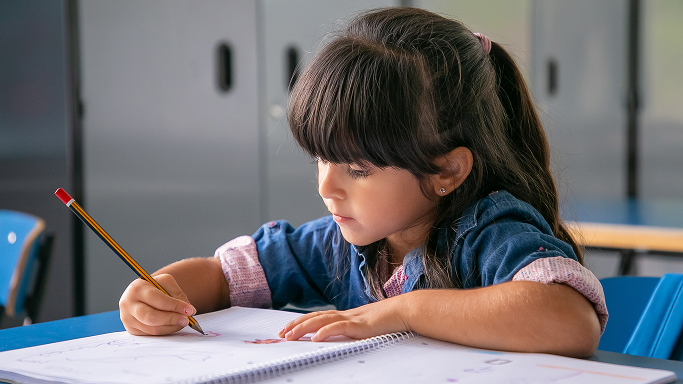Individual Link Content
*Learning Disabilities
Dyslexia – Difficulty with Reading and Language Processing
Dyslexia is a specific learning difficulty that affects reading, spelling, and writing. Children with dyslexia may struggle to recognize words, decode sounds, or understand written text—even though they may be bright and creative in other areas. It’s not about low intelligence; it’s about how the brain processes language differently.
Common signs include:
- Difficulty reading fluently or accurately
- Poor spelling and writing skills
-
Confusion with letter sounds and word patterns
-
Slow reading and difficulty understanding what is read
Dysgraphia – Difficulty with Writing and Written Expression
Dysgraphia affects a child's ability to write clearly and efficiently. It can involve poor handwriting, trouble spelling, and difficulty organizing thoughts on paper. Children with dysgraphia often know what they want to say but struggle to express it in writing.
Common signs include:
- Illegible or inconsistent handwriting
- Trouble with spelling and punctuation
-
Difficulty organizing ideas in writing
-
Pain or frustration when writing for extended periods
Dyscalculia – Difficulty with Numbers and Mathematical Concepts
Dyscalculia is a learning difficulty related to understanding numbers, math facts, and concepts. Children with dyscalculia may have trouble grasping basic math operations, understanding time, or using money correctly—even with consistent practice.
Common signs include:
- Difficulty understanding number value or quantity
- Trouble learning math facts (like tables)
-
Confusion with time, sequencing, and direction
-
Struggles with money and making calculations
With timely identification and targeted support, children with dyscalculia can thrive. At RMCC, we offer personalized intervention programs that focus on enhancing mathematical understanding, building confidence, and helping each child realize their true potential.
*ADHD – Attention-Deficit/Hyperactivity Disorder
ADHD is a neurodevelopmental disorder that affects a child’s ability to focus, sit still, and control impulses. It is one of the most common conditions diagnosed in children and often continues into adolescence and adulthood.
ADHD is not a result of laziness or poor parenting. Children with ADHD often want to behave well but struggle with self-regulation due to how their brain processes attention and impulses.
Types of ADHD
1. Inattentive Type – Difficulty sustaining attention, easily distracted, forgetful
2. Hyperactive-Impulsive Type – Fidgety, restless, talks excessively, acts without thinking
3. Combined Type – Shows symptoms of both inattentiveness and hyperactivity
Common Signs of ADHD:
- Trouble paying attention or following instructions
- Frequently losing things (books, stationery, homework)
-
Difficulty sitting still or staying quiet when expected
-
Impulsive behavior (blurting out answers, interrupting others)
-
Easily bored or jumping from one task to another
Early diagnosis and consistent support can help children with ADHD thrive in school and life. At RMCC, we offer structured assessments, behavior management strategies, and personalized intervention programs to support focus, organization, and self-control—helping children channel their energy in positive, productive ways.
*Emotional & Behavioral Challenges
Emotional and behavioral challenges can significantly affect a child’s ability to function effectively at home, in school, and in social settings. These challenges may show up as mood swings, aggression, anxiety, withdrawal, defiance, or difficulty handling emotions.
It’s important to understand that these behaviors are not always intentional or attention-seeking—they often reflect a child’s inner struggle to cope with overwhelming feelings or unmet developmental needs.
Common Emotional Challenges:
- Persistent sadness or frequent crying
- Anxiety, worry, or excessive fears
-
Low self-esteem or lack of confidence
-
Difficulty expressing or regulating emotions
Common Behavioral Challenges
- Aggression, anger outbursts, or tantrums
- Defiance or non-compliance
-
Restlessness or hyperactivity
-
Social withdrawal or difficulty making friends
These challenges may arise due to various reasons, including stress, anxiety, learning difficulties, or neurological conditions like ADHD or Autism Spectrum Disorder. They often co-exist with other learning or developmental concerns.
Understanding Learning Challenges: Academic and Emotional Dimensions
How RMCC Helps
At RMCC, we approach emotional and behavioral concerns with compassion, care, and clinical expertise. Our team offers:
- Individual counselling
- Emotional regulation strategies
-
Parent and teacher guidance
With the right support, children can learn to manage emotions, build positive behavior, and thrive socially and academically.



